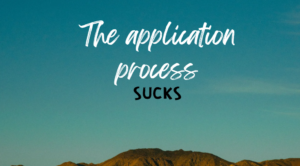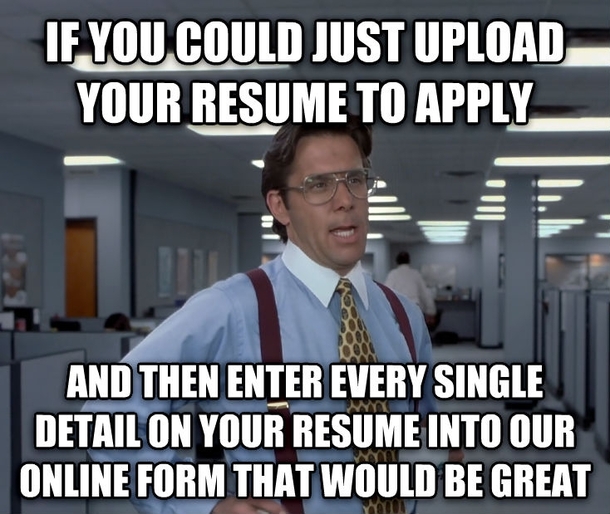
The job search process can be a challenging and time-consuming experience for job seekers. On average, it takes several weeks for an individual to secure a new position. This involves spending a significant amount of time searching and applying for various job openings on different websites.
Think of how many jobs they applied to or started to apply to with over a month of searching! Looking for a new job is a job and is extremely time intensive. This means that applicants will likely become more selective when it comes to spending their time applying.

The Problem:
Applying for jobs takes too long. If it takes longer than five minutes job seekers won’t apply. According to the Society of Human Resources Management, the number of abandoned job applications is around sixty percent! Consider all the potential candidates that could be interested in your openings, only to not follow through with the application.
People are used to getting instant gratification. If your site is slow and requires a high amount of fields to populate, they will just move to the next opening. We just don’t have time to spend on applications that are cumbersome and frustrating.
Recruiters, to get an insight into what your candidates are experiencing, try and apply for one of your positions. Now, envision that from an applicant’s perspective. Depending on the requirements, it can take over thirty minutes to apply for a job opening. Couple the lengthy application process with the fact that after taking all that time to apply they may never hear back about the job and it really has a negative effect on that job seeker. Candidate experience really matters and the application process is the first step in their journey.
The Solution:
The good news is that there are some ways you can improve the experience candidates have when applying to your positions. If the application takes too long or doesn’t work properly, maybe it’s time to upgrade your Applicant Tracking System.
There are tons of options on the market and several that take the experience from daunting to quick and relatively painless. Make sure you choose one that has great reviews and will offer you a demo to make sure it will work for what you need.
If you aren’t keen on investing in a new ATS, consider making your career site more mobile friendly. The amount of job seekers using their phones to search and apply is the highest it has ever been due to the amount of people with smart phones. Re-configuring your site to make it easy to apply from your phone would be a huge feature.
How can companies improve the job application process?
Streamline the application process: Make it as simple and user-friendly as possible. Avoid asking for unnecessary information and make sure the application can be completed quickly and easily.
Provide clear instructions: Clearly outline what is expected in the application and what materials are required.
Use an applicant tracking system (ATS): This can help automate some of the recruitment process and make it more efficient.
Communicate effectively: Keep candidates informed about the status of their application and provide them with feedback.
Make the process mobile-friendly: many people are looking for jobs on their mobile devices, so make sure that the application process is optimized for mobile use.
Make use of online video interviews: it can be an efficient way to pre-screen candidates before inviting them for an in-person interview.
Encourage referrals: Encourage current employees to refer their friends and connections for open positions, which can help increase the quality of candidates and speed up the hiring process.
By implementing these strategies, companies can create a more efficient, transparent, and candidate-friendly job application process, which can lead to improved candidate experience and increased chances of attracting top talent.
Recommended Reading:
How to Manage Employer Branding During a Pandemic Year
How to Navigate through Covid and Recruit Tech Talent
My SourceCon Digital 2.0 Presentation
- AI Search Will Transform Talent Sourcing Forever - January 10, 2025
- Build an AI Sourcing Assistant using ChatGPT 4 - January 10, 2025
- Top Recruiting Leaders to Follow in 2025 - January 8, 2025
